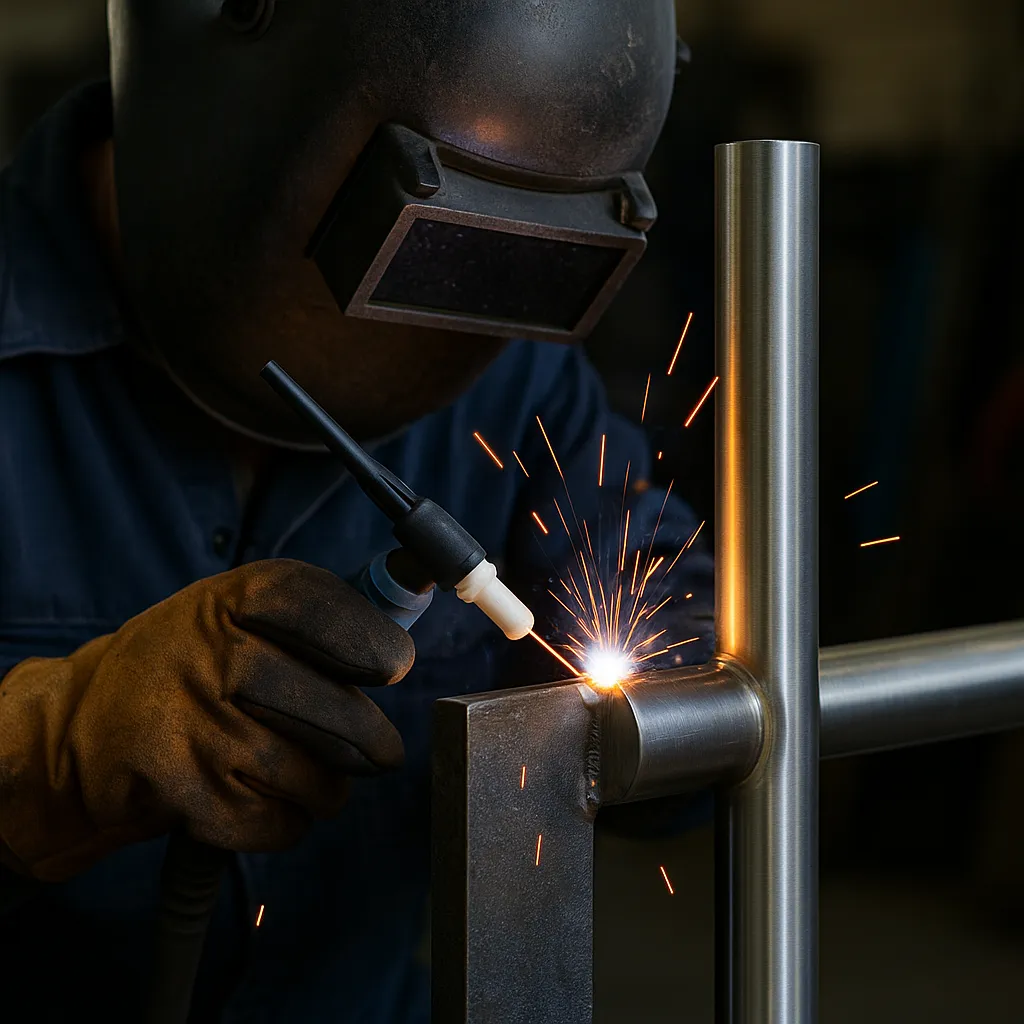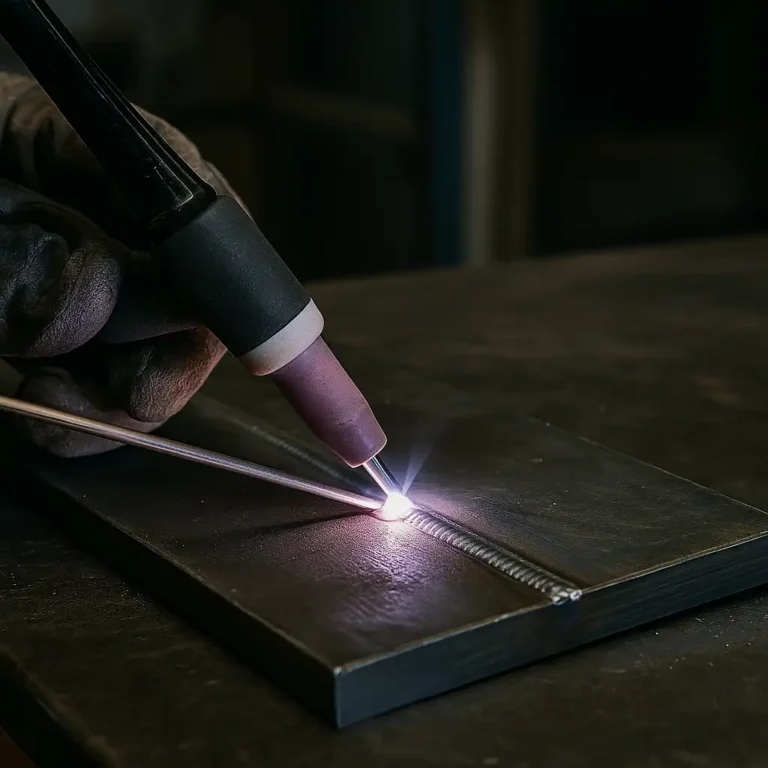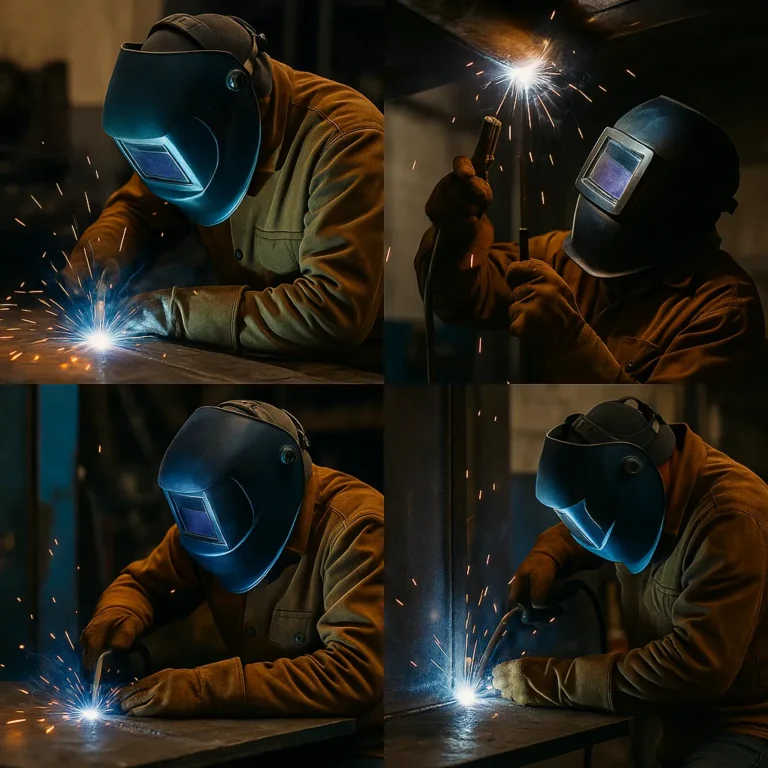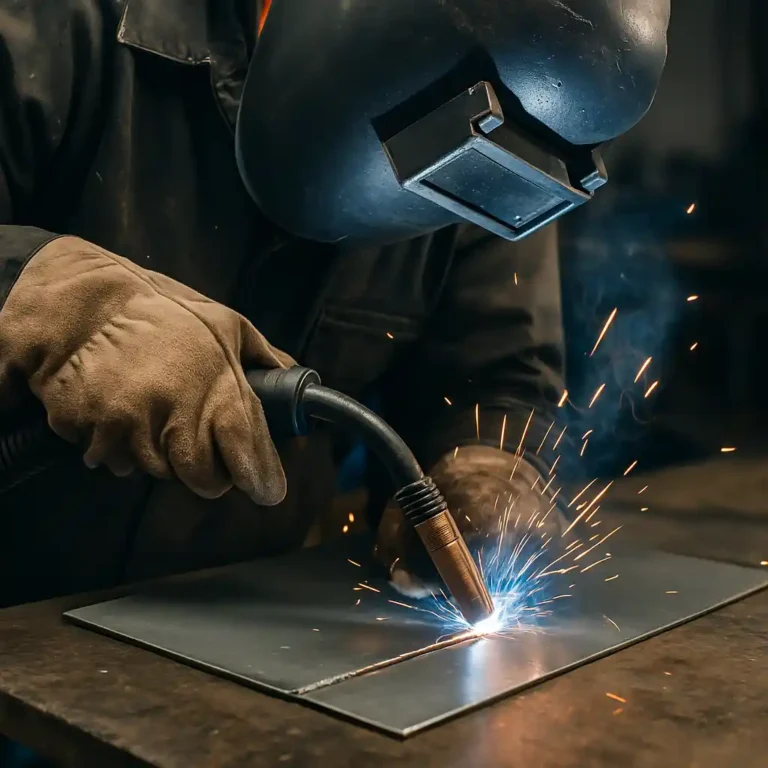Can Titanium Be Welded to Other Metals? A Practical Guide for Welders

Disclosure: This post contains affiliate links. As an Amazon Associate, I earn from qualifying purchases—at no extra cost to you.
Titanium is famous for being lightweight, incredibly strong, and resistant to corrosion, but that doesn’t mean it’s easy to work with. If you’re considering welding titanium to steel, stainless, or aluminum, there’s some critical information you need before you strike your first arc. Based on real-world welder feedback and shop experience, here’s a practical look at why welding titanium to other metals isn’t as simple as it sounds—and what your best options really are.
Why Welding Titanium to Steel or Stainless Is So Difficult
Titanium’s reactivity is its biggest challenge when welding it to other metals. When titanium gets hot, it easily forms brittle compounds with steel or stainless. According to welders in forums and small shops, these brittle layers usually lead to cracks and weld failure.
Because of this, most fabricators avoid direct welding between titanium and steel. Instead, they often rely on bimetallic transition inserts. These specially designed fittings help bridge the gap between dissimilar metals without creating weak welds. In smaller shops, mechanical fastening or brazing is also used when titanium needs to join with steel or stainless.
For hobby welders working in a garage, the advice is simple: stick to titanium-to-titanium welds unless you’ve got the right gear and know-how for complex joining methods.
Equipment and Setup You’ll Need for Titanium Welding
Welding titanium demands precision, especially when dealing with dissimilar metals. Based on welder feedback and manufacturer specs, you’ll need a high-quality TIG welder with fine amperage control. Machines like the Miller Multimatic 220 AC/DC or similar models are good examples of what’s required.
Shielding gas is just as important. Pure argon is standard, but many welders recommend using a gas lens kit and trailing shield for consistent gas coverage. This step is crucial because titanium oxidizes easily, and even minor contamination can ruin a weld.
If you’re working in a small garage setup, make sure your workspace is clean and dry. Titanium is far less forgiving than mild steel when it comes to contaminants like dust, oil, or moisture.
Safety Factors and Small Shop Challenges
Titanium’s welding challenges don’t stop at the weld itself. Because it’s highly reactive at high temperatures, titanium sparks can ignite nearby materials more easily than steel. That’s why experienced welders recommend keeping your welding area clear of flammables when working with titanium.
According to user feedback, back-purging is essential for tube and pipe welding to prevent weld contamination. While back-purging setups are common in professional shops, they’re not always practical for hobby welders working on small projects. This makes welding titanium to other metals even more challenging for home setups.
Is Welding Titanium to Other Metals Realistic?
In short, it’s not practical for most small shops or hobbyists.
Many professionals turn to advanced techniques like friction welding, explosive bonding, or using transition inserts when titanium needs to be joined to dissimilar metals. These methods require specialized equipment that’s not accessible to most DIY welders.
If your project involves joining titanium to steel or aluminum, mechanical fasteners or outsourcing the job are usually smarter choices. Community feedback consistently points to this approach as safer, cheaper, and more reliable for small-scale operations.
Conclusion
While titanium can technically be welded to other metals, it’s rarely done using standard TIG or MIG processes. Most hobbyists and small-shop welders should avoid attempting direct welds between titanium and materials like steel or aluminum. Instead, stick with titanium-only welds or use mechanical connections and transition fittings for mixed-metal projects. If precision joining is essential, your best option is outsourcing to a specialist.






